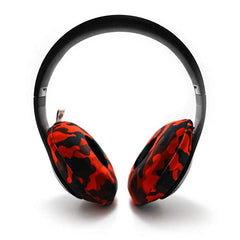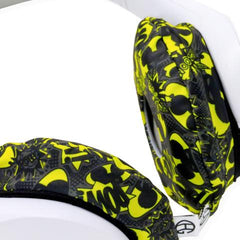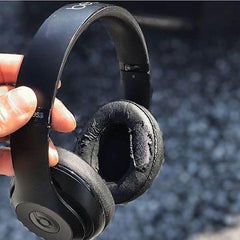Hot! Hot! Heat! Working Out in Warm Weather


And it's easy to underestimate just how much hot weather can affect our fitness. We can sometimes get a bit misty-eyed at the thought of summer. For those of us who exercise outside, the warmer weather is often a welcome change from the horizontal rain showers, icy pavements and howling winds of those winter training months. Even those who prefer the temperature-controlled comfort of a gym might be tempted to take in the fresh air of a sunny day. Embrace the warmth, but be mindful of the dangers and annoyances that come with it. Here are a few suggestions for working out safely:
Pre-cooling
Pre-cooling reduces the body's temperature before exercise. Athletes tend to do this before competition and science seems to back it up. Hot conditions can have a negative impact on performance and endurance so it makes sense to keep the body cool for as long as possible. Australia's Southern Cross University ran an experiment with runners on a treadmill. They connected participants to sensors and told them to run a 5-kilometre time trial in a lab heated at 91 degrees. One week later, they did the same again only this time each runner spent 30 minutes in a bathtub filled with chilled water. Again, they were monitored. On the third week, participants ran the same distance but this time after each kilometre, researchers sprayed their faces with cool water.
The researchers found that cooling DID have a positive impact on endurance. A cooler body temperature enabled the runners to not only run faster but further, too. This is worth bearing in mind because you don't need to jump in a cold bath; you could mist your face as happened in the experiment or you could dump the contents of a chilled water bottle over your head like long-distance runners at water stations. You could even make a pre-workout ice drink. We're not talking a slushie with syrup but you could blast ice in a Nutribullet with some fruit and sip it before you start. This would cool your body down from the inside.
These small things could help make a sizeable impact on how your body copes once you're out and sweating.

Stay well hydrated.
We're not trying to teach you to suck eggs, promise. This is probably the most obvious of all the advice offered here but it's the one that's easily ignored. Hydration isn't just about whether your throat is dry. Sweat is how we cool off during exercise. The moisture we lose needs to be replaced. BUPA recommends that you drink 500ml of water at least four hours before exercise and topping this up by about 250ml in the 10 to 15 minutes before exercise, but this is general advice and depends on the intensity of the exercise and the individual athlete. In the warm weather, you will probably find yourself reaching for additional water, too. Listen to your body, and respond accordingly. Working out for longer than 90 minutes? Then you'll need more than just plain water. Find something to replace the electrolytes you're losing.
Keep an Eye on Humidity
Speculating about temperature is something of a British pastime BUT when the weather warms up it pays to keep an eye on the humidity level. Humidity is the amount of water vapour in the air and when it's high it can interfere with the body's ability to cool itself down. If our sweat isn't evaporating, then we can't regulate our temperature effectively, and we're in danger of overheating and falling ill. Exercising in high humidity is going to be difficult and very, very sweaty, and if you can skip a day or slow it down then there's no shame in that. Heat exhaustion will keep you off your feet a lot longer than altering your workout schedule.
Acclimatization
There is a way to acclimatize your body to cope with a hotter climate. This is useful if you live somewhere with consistent and sustained hot weather or if you're travelling abroad for a sports competition. This is something that's built up slowly over a period of weeks. The Running Competitor website advises that all runners are different but that 'generally it takes about two weeks of continual training in the heat to acclimatize. Averaging at least one hour of moderate exercises daily in hot conditions.' The key thing here is to do it gradually. And even then it's sensible to move some of your training indoors BUT it means there's hope! You can build up to a place where your body will be better equipped to maintain its core temperature, increase its sweat rate and reduce water and electrolyte loss. All of this will help you perform closer to your best.

Take a break! Hit the Pool!
In the UK, long periods of intensely hot weather are unlikely. High temperatures usually last days, maybe a week but not months. So there's no real harm in rescheduling an intense workout until conditions are more favourable. If you really can't wait, then take your exercise indoors preferably to wherever the air-conditioning is blasting or dial it down for a few days. If there's one sport that makes the heat ideal, it's swimming, and there are a number of outdoor pools around the country that could provide a welcome change in your routine whilst still providing cardio and strength training. There's almost certainly going to be an indoor pool close by, too, or if you're really lucky, a beach.
Change Your Times
Working out in the early morning and evening is another good way of enjoying the warmer weather whilst still keeping momentum in your routine. And again, it sounds like obvious advice but we've all seen the runners staggering around in the middle of the afternoon looking like something off the Walking Dead.
Go Light on the Clothing
Keep your clothing light and wear sweat-wicking fabrics if possible. They'll move sweat away from your skin and dry quickly keeping you cooler and comfortable. Be sure you wear SPF so you don't end up looking like a Swizzel's refresher under and around your vest or tee.
It's Kind of Common Sense
People work out in the heat every day. It doesn't have to be a big deal if you prepare for it and build some flexibility into your routine whether that's skipping a day or two, switching your times around or taking your stride indoors. And it's great to see that there is a long-term solution like acclimatization even for those who aren't so used to the heat. And we'll definitely be using the pre-cooling technique – what's your secret to working out in the summer? We'd love to find out.
Protect Your Headphones With EarHugz
Sweat – it's going to happen.
It's definitely going to happen in the hot weather so make sure you use EarHugz to protect your headphones from moisture damage. EarHugz are anti-bacterial, machine washable and fully reversible. They come in a range of designs to fit your mood whatever the weather is doing outside. Your headphones are designed to outlast the summer so make sure they do: protect your sound with EarHugz.




